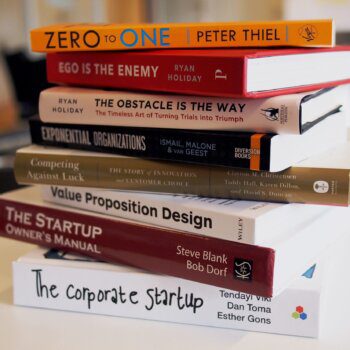(Women on Top in Tech is a series about Women Founders, CEOs, and Leaders in technology. It aims to amplify and bring to the fore diversity in leadership in technology.)
Jennifer started coding at the age of thirteen when her parents bought her first at Macintosh, Australia. Turned onerous challenges into great opportunities, Jenn’s inclusive mindset allows her to dig deep into understanding Tech, Business, Partners and the teams she leads. Her major breakthrough in the digital world opens when Google offered her a role as a strategist whilst she’s running an SEO business just right from home. In streaking luck, she chose very talented mentors devoted to resuscitating her new life as well as discern people’s lives under her supervision that ultimately lead her to become a strong impetus today. Her winsome zest for finding creative data-driven solutions has been constantly evident in her leadership style. Now, she is the VP & Head of Data Governance for NTUC Income in Singapore and plays actively as a mentor among female technology leaders.
Why do you do what you do and how did you rise in the industry you are in?
I have viewed unexpected challenges and changes in my career as a great opportunity for growth. For example, when I was working as the Head of Travel and Hospitality for Google in 2015, I hit a huge setback. I had to automate and downsize my business as well as my team. This further meant that managing myself and seven others out of our roles. Initially, I felt scared and angry but I got over the fear of failure and looked at the transition as an opportunity to document and learn what it really means to automate a digital business. Since then, I have created and dismantled four teams and businesses.
This is to remind myself that the only constant in life is change. Viewing setbacks as a platform to reinvent myself has allowed me to rise and move forward.
Do you have a mentor that you look up to in your industries or did you look for one or how did that work?
I have a lot of informal mentors who have now become my friends but few of them are formal mentors. My first formal mentor is a business leadership coach, named Sue Adams, whom I met when I was at Google. Sue taught me the basics of developing energy and presence. She introduced me to the principles of mindfulness and how to incorporate cognitive awareness into my everyday life both inside and out of the office.
My second formal mentor is Marion Neubronner who helped me transition from Google to NTUC Income. She assisted me to tap my core interpersonal skills and apply them in other realms that I would not normally consider. She taught me how to use intuition, visualization, and kinesis in a deliberate fashion and then “code” it into my new reality. This type of work may feel uncomfortable for a lot of people that do not do well with vulnerability. But thanks for being open to this coaching style, I have allowed Marion to round up my spiritual knowledge and acceptance of myself in ways I have not done before.
Now as a leader, how do you spot, develop, keep, grow and support your talent?
Talent development is the topmost priority for any leader committed to growth. Leading a team can sometimes be painful, tiresome, time-consuming and complex. I find it crucial for any leader who wants to make a meaningful impact on her team members and achieve a successful outcome. I do warn leaders that not everybody wants to be coached or are ready to be coached. Understanding and recognizing your people’s stages and development of their respective professional career is very important. Being structured with their KPIs and giving examples of what great outcome looks like extremely encourage to start a meaningful and successful journey.
Do you consciously or unconsciously support diversity and why?
Absolutely conscious and very deliberately. I believe in diversity and inclusion as key drivers of innovation, creativity and an effective way of managing change. Diversity is pivotal and leaders must prepare programs that support diversity and inclusion.
Inclusion does not mean hitting a diversity mandate. Just because you have fifty percent of your leaders are female, does not necessarily mean that people fit in. What about people with different values from a religious perspective or about team bonding events that do not mean that you have to drink. I see that quite often.
Inclusion is realizing that young new dads need as much time off as potentially the mom does. It also means not stigmatizing men as less ambitious and masculine for playing more active parenting roles.
Advice for others?
I think right now there is no right or wrong in figuring out your own development path. The important piece to keep in mind is that when you are in doubt, when you feel that the opportunity is not there, when you feel like you do not have the skill, when you feel that somebody else is better equipped, challenge those questions, challenge that story in your head. Challenge your thinking and tone. Really, that is the number one thing.
If you’d like to get in touch with Jennifer, please feel free to reach out to her at
https://www.linkedin.com/in/jennvillalobos/
This article is co-written with Juanita T.K
Juanita is a reporter for Women on Top in Tech.
She is a commercial associate working in the fastest growing digital health company based in the UK. She is now in Singapore to set up the APAC office from 4 to 200 over the course of 2 years. She spends her time keeping up with news in tech and being fully present with her loved ones here.





























